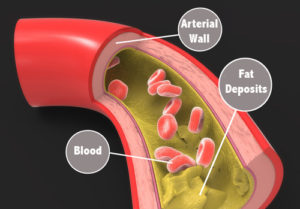Would you like to keep your cholesterol levels healthy? If so, then eating almonds could be the right thing to do. Studies have shown that having a healthy diet that includes almonds noticeably reduces LDL levels.
Eating almonds could also protect you from diabetes, cardiovascular diseases, cancer, and even weight gain and obesity. Keep reading and learn about almonds’ properties for reducing cholesterol.
Studies of almonds’ cholesterol-reducing properties
Several studies have analyzed almonds’ properties for reducing cholesterol and the results seem promising. These studies have been performed on a wide spectrum of individuals, including those that have high cholesterol, normal cholesterol levels, diabetes, and obesity.These studies have generally reported up to 10% reduction of bad (LDL) cholesterol in the participants that consumed almonds, compared to those that didn’t. This reduction takes place without risking good cholesterol levels, also known as (HDL).
These results those that all you need to do is consume almonds, without making any other dietary changes. However, cutting out animal fats and a lot of other foods rich in cholesterol will definitely help reduce LDL cholesterol levels much more.
So…How many almonds do I need to eat?
In order to reduce LDL cholesterol by 10%, you should try to eat about 73 grams of almonds a day. This is roughly half a cup of almonds, and about 400 calories just in almonds. One study on dosage-response showed a 5% reduction in LDL cholesterol per 1/4 cup of almonds, and a 10% reduction for 1/2 cup. To this day, no studies have been made as to the effects of eating an entire cup of almonds a day; however, because almonds have a lot of calories, doing so would not be very recommendable.Cholesterol-reducing properties of almonds

According to the Mayo Clinic, almonds are one of the five best cholesterol-reducing foods. Almonds are rich in monounsaturated fats which are health promoting fats. They are also rich in vitamin E which is an excellent source of antioxidants. Antioxidants help prevent free radical damage and have been proven to also help reduce heart disease. Almonds are also rich in magnesium, helping improve blood flow.
Considerations
In spite of the fact that almonds are considered to contain good fat types: polyunsaturated and monounsaturated; foods high in fat are also high in calories, and therefore could cause a weight gain According to the Mayo Clinic, eating almonds in moderation (1/4 or 1/2 a cup a day, as previously indicated) will truly provide great benefits.If you were to substitute all those little snacks that contain harmful cholesterol, like french fries and salty crackers, with almonds or other dried fruit, you would be eating a much healthier diet..
Source: healthdigezt.com














0 comments:
Post a Comment